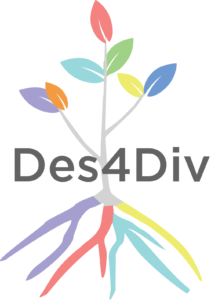Why this project?
Technological tools empower us to preserve the voices of disenfranchised and marginalized communities. Some might create community archives based at their local activist group or church, others might work to create collections within universities or museums. We (the Digital Scholarship Group, based in the Northeastern University Library) are partnering on an increasing number digital projects involving community-based archives, and we want to do it responsibly.
This grant, along with our prior experience in this area, gives us an opportunity to bring people together to discuss these issues, and synthesize what we learn into a set of resources to share with the cultural heritage community. We have questions like: How is naming and representation in our cataloging or data modeling influenced by power? What ethical decisions should be made before exposing digital collections to automated harvesting, analysis, and re-use on the internet? When interfaces guide interactions with documents and items, are those interfaces responsive to community needs, or do they force a diversity of ideas into ill-fitting and harmful boxes?
One of our main outcomes of the first phase of this project is a teaching and learning toolkit that provides a framework for investigating these issues. The toolkit framework will provide a way of investigating and teaching design problems, so that we ask the questions that will lead to more thoughtful outcomes.
In addition, while issues of social justice, community partnerships, and diverse collections are becoming more visible in the education of library, archives, and museum workers, the information and system design aspects are not yet a core part, and we want to help make them a core part.
Project History
Work is led by members of the DSG staff with expert input from our Advisory Board. In 2017 and 2018, we also also recruited a Toolkit Design Group with a wide range of expertise to develop the bulk of the toolkit as well as Critical Review Partners to provide valuable in-depth feedback to the Design Group.
We welcomed in-person participation at our two public events kicking off the project (Fall 2017 and Summer 2018), which were free and open to any attendee. The Opening Forum explored the range of existing work and identify remaining challenges. Participants created a large base of theory, ideas, and sources for use in developing the toolkit. Members of the Toolkit Design Group and Critical Review Partners developed an initial framework and rough draft of the teaching toolkit, building on work accomplished in the Opening Forum. The Concluding Review Forum presented the draft teaching toolkit for critique and feedback to a larger audience, and helped recruit potential partners to test and refine the toolkit in the future. We are, in Spring 2019, also circulating the toolkit online for additional broad discussion and critique before the final version’s release.
Where possible we recorded and streamed all public forum events. We continue to encourage online participation such as Twitter, edits and comments on shared collaborative documents, surveys, and other feedback mechanisms.
We want to recruit partners widely: practitioners, educators, researchers, and students in cultural heritage and related fields. It is essential to this project that our partners bring diverse experiences and skills — this means you!
We use the word “practitioners” deliberately, to include a broad range of people and organizations, whether part of a large formal organization or smaller, grass-roots community efforts. We welcome community historians and other cultural heritage practitioners as well as those working in the library, archives, and museum world and those in related fields such as digital humanities, public humanities, and digital history.

